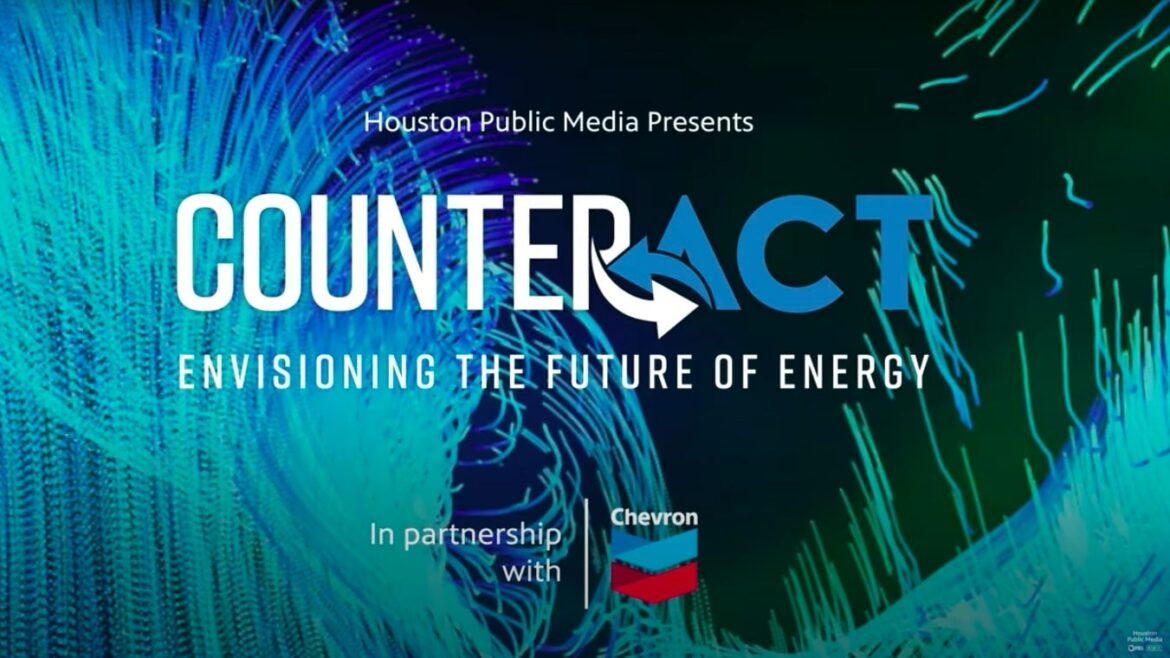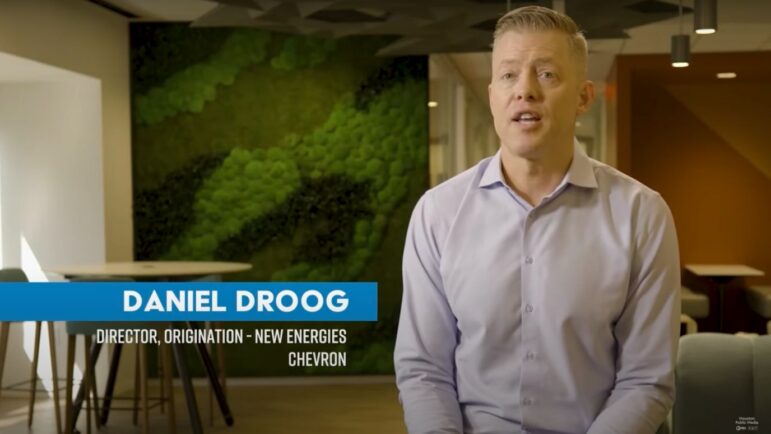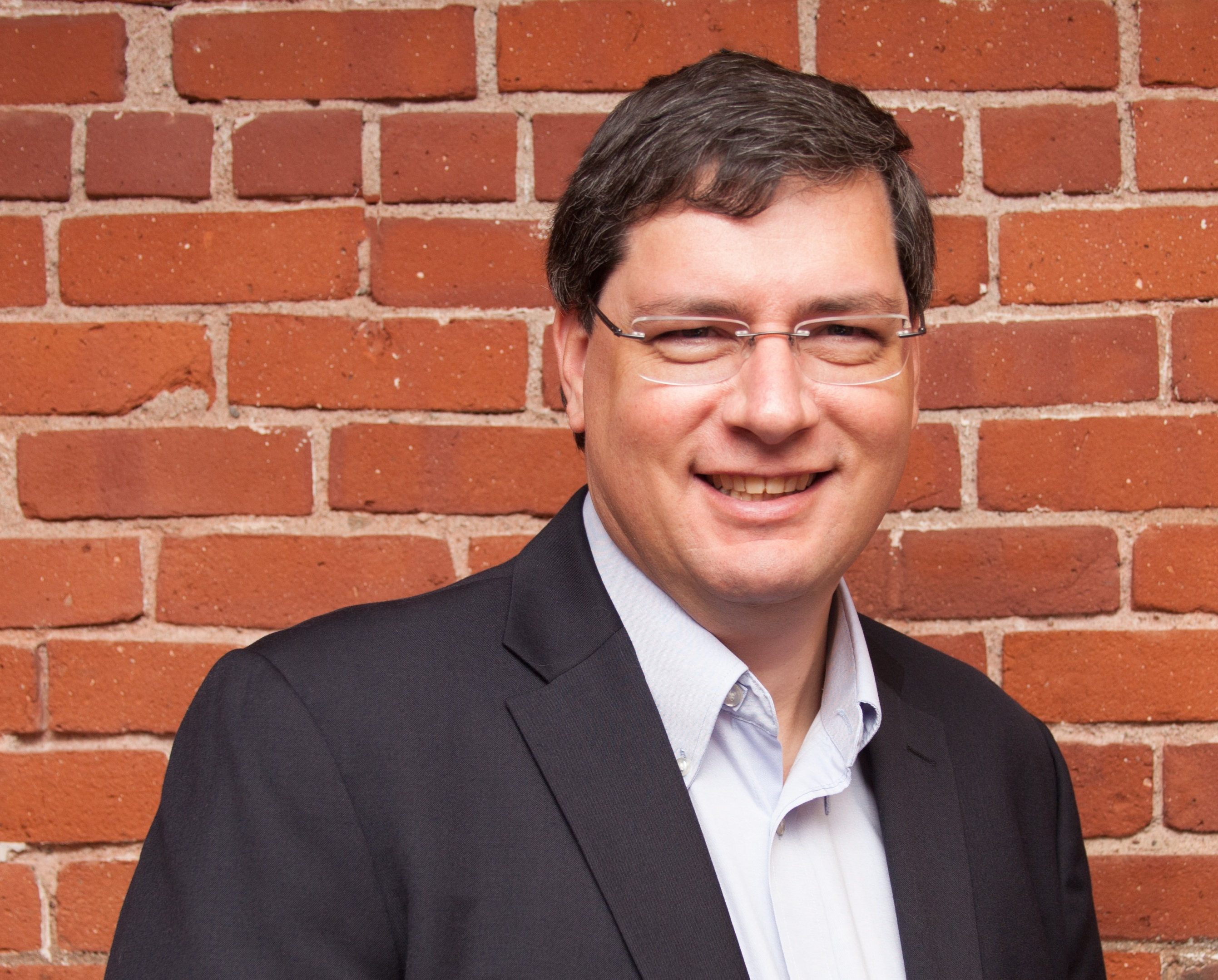Houston Public Media suspends Chevron partnership after backlash over sponsored content

HPM via YouTube
The opening title of Houston Public Media's Chevron-sponsored video series.
Houston Public Media suspended production of a video series created through a content sponsorship with Chevron amid backlash over its failure to disclose that the content was not produced by its newsroom.
The station unveiled the sponsorship package Tuesday with the digital release of the first episode of CounterACT: Envisioning the Future of Energy. The 10-part video series, produced through HPM’s Community Catalysts sponsorship program, was to explore the energy sector’s potential to work “towards a lower carbon future” in response to climate change.
“Chevron sponsored the series but had no editorial oversight over the content,” GM Lisa Shumate said in a statement. “We acknowledge that this created confusion and will be pausing Community Catalysts while we evaluate our production process.” Content created through Community Catalysts is posted on HPM’s digital platforms and airs on its stations during program breaks.
Chevron issued a statement Saturday. “Chevron is committed to having an honest conversation about energy. This means sharing our perspective, listening to others, respecting differences, and working to find solutions. … We are disappointed that HPM will not continue the CounterACT series, which aims to advance this discussion.”
The public backlash began Wednesday when several journalists criticized HPM on Twitter for not identifying the first video as sponsored content. HPM deleted its tweet promoting the episode. Chevron, which also promoted the partnership Tuesday on its Twitter account, also deleted its tweet. The landing page for CounterACT on HPM’s website was also deleted.

The episode, released on HPM’s YouTube page and deleted Friday, showed footage of melting ice, turbulent seas, flooding and wildfires alongside images of oil rigs, refineries and pipelines. Energy industry experts presented the case for Houston to become “a significant leader in the energy transition,” in the words of Daniel Droog, director of new energies for Chevron, one of the three energy industry experts to appear in the video. Ken Medlock, senior director of the Center for Energy Studies at Rice University’s Baker Institute of Public Policy, and Bobby Tudor, chair of the Houston Energy Transition Initiative at the Greater Houston Partnership, a local chamber of commerce, also appeared in the video.
The title roll included the phrases “HPM Presents” and “In partnership with Chevron” but no disclosure that the six-minute video of PR-styled messaging was sponsored content.
“This is really terrible,” said Joshua Benton, a senior writer and founder of Nieman Lab, in a retweet sharing the first episode. The video lacked a standard disclaimer to let the audience know “the newsroom didn’t make this,” he added.
“This is absolutely bonkers,” tweeted Brian Kahn, a climate editor for Protocol. He described the video as “just straight up repeating industry talking points” and “a huge conflict of interest.”
Houston Public Media did not respond to requests for an interview or emailed questions about the Chevron sponsorship, how it was produced or its ethical standards for sponsored content.
A current HPM employee told Current that staff received a written message Wednesday directing them not to respond to criticism about the station in public and noting that official responses should come from management only. The memo, which was sent after the Twitter backlash began, did not directly mention the Chevron partnership, the employee said.
The employee, who requested anonymity because they were not authorized to speak to news media, said they were among the staffers who were ignored when they expressed ethical concerns about HPM’s sponsored content program. The primary objection of staff has been that HPM doesn’t explicitly disclose that its sponsored content is not produced by the newsroom.
Previous content sponsorships have featured local nonprofits, such as the United Way of Greater Houston, St. Luke’s Health and the University of Houston College of Medicine and its academic partner HCA Houston Healthcare; web pages that linked to programs from those sponsorships have been deleted.
The current employee and four former employees told Current that Chevron has a long history of funding HPM. For example, during radio pledge drives, HPM has a “Chevron Sustainer Challenge” that matches recurring donations dollar-for-dollar.
Chevron described its funding commitment in its statement. “We have been a long-standing supporter of Houston Public Media, which provides a platform for open conversations around important issues relevant to Houston, including the energy transition.”
All of the former employees asked to speak without attribution because they still work in Houston and fear retribution for talking publicly. A former HPM employee with knowledge of the station’s development operations said a separate team of in-house producers films and creates the sponsored content with little fact-checking or editorial vetting. The newsroom has no involvement in the sponsored projects, they said.
A dual-license, university-owned public broadcaster, HPM is a member of both PBS and NPR but sets its own editorial standards. A statement of its cultural values on its website says, “We choose to foster a culture of trust with our listeners, audience, and our staff and support individuality and uniqueness of thought.” Its statement on ethics and standards cites NPR’s ethics handbook and adds, “As a public media outlet, we are independent, and we are transparent.”
One former reporter acknowledged that funding for HPM “has to come from somewhere,” and in Houston, that means raising money from the energy sector. But HPM has an obligation to do a better job of making disclosures that differentiate its sponsored content from the journalism produced in its newsroom, the reporter said.
This story has been updated to include Chevron’s statement and to note that HPM deleted its webpages featuring content previously sponsored by local nonprofits.







